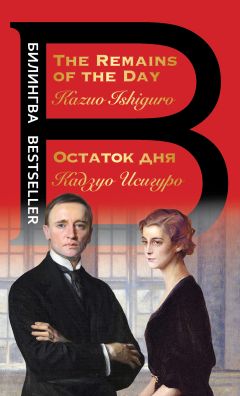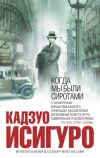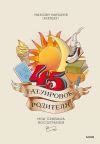Текст книги "Остаток дня / The Remains of the Day"

Автор книги: Кадзуо Исигуро
Жанр: Современная зарубежная литература, Современная проза
Возрастные ограничения: +16
сообщить о неприемлемом содержимом
Текущая страница: 7 (всего у книги 28 страниц) [доступный отрывок для чтения: 9 страниц]
There was a stunned silence and no one moved. Mr Lewis shrugged, raised his glass to all the company, drank and sat back down. Almost immediately, Lord Darlington stood up.
‘I have no wish,’ his lordship said, ‘to enter into a quarrel on this our last evening together which we all deserve to enjoy as a happy and triumphant occasion. But it is out of respect for your views, Mr Lewis, that I feel one should not simply cast them to one side as though they were uttered by some soap-box eccentric. Let me say this. What you describe as “amateurism,” sir, is what I think most of us here still prefer to call “honour”.’
This brought a loud murmur of assent with several ‘hear, hear’s’ and some applause.
‘What is more, sir,’ his lordship went on, ‘I believe I have a good idea of what you mean by “professionalism.” It appears to mean getting one’s way by cheating and manipulating. It appears to mean serving the dictates of greed and advantage rather than those of goodness and the desire to see justice prevail in the world. If that is the “professionalism” you refer to, sir, I don’t much care for it and have no wish to acquire it.’
This was met by the loudest burst of approval yet, followed by warm and sustained applause. I could see Mr Lewis smiling at his wine glass and shaking his head wearily. It was just around this stage that I became aware of the first footman beside me, who whispered:
‘Miss Kenton would like a word with you, sir. She’s just outside the door.’
I made my exit as discreetly as possible just as his lordship, still on his feet, was embarking on a further point.
Miss Kenton looked rather upset.
‘Your father has become very ill, Mr Stevens,’ she said. ‘I’ve called for Dr Meredith, but I understand he may be a little delayed.’
I must have looked a little confused, for Miss Kenton then said:
‘Mr Stevens, he really is in a poor state. You had better come and see him.’
‘I only have a moment. The gentlemen are liable to retire to the smoking room at any moment.’
‘Of course. But you must come now, Mr Stevens, or else you may deeply regret it later.’
Miss Kenton was already leading the way, and we hurried through the house up to my father’s small attic room. Mrs Mortimer, the cook, was standing over my father’s bed, still in her apron.
‘Oh, Mr Stevens,’ she said upon our entry, ‘he’s gone very poorly.’
Indeed, my father’s face had gone a dull reddish colour, like no colour I had seen on a living being. I heard Miss Kenton say softly behind me:
‘His pulse is very weak.’
I gazed at my father for a moment, touched his forehead slightly, then withdrew my hand.
‘In my opinion,’ Mrs Mortimer said, ‘he’s suffered a stroke. I’ve seen two in my time and I think he’s suffered a stroke.’
With that, she began to cry. I noticed she reeked powerfully of fat and roast cooking. I turned away and said to Miss Kenton:
‘This is most distressing. Nevertheless, I must now return downstairs.’
‘Of course, Mr Stevens. I will tell you when the doctor arrives. Or else when there are any changes.’
‘Thank you, Miss Kenton.’
I hurried down the stairs and was in time to see the gentlemen proceeding into the smoking room. The footmen looked relieved to see me, and I immediately signalled them to get to their positions.
Whatever had taken place in the banqueting hall after my departure, there was now a genuinely celebratory atmosphere amongst the guests. All around the smoking room, gentlemen seemed to be standing in clusters laughing and clapping each other on the shoulder. Mr Lewis, so far as I could ascertain, had already retired. I found myself making my way through the guests, a bottle of port upon my tray. I had just finished serving a glass to a gentleman when a voice behind me said:
‘Ah, Stevens, you’re interested in fish, you say.’
I turned to find the young Mr Cardinal beaming happily at me. I smiled also and said:
‘Fish, sir?’
‘When I was young, I used to keep all sorts of tropical fish in a tank. Quite a little aquarium it was. I say, Stevens, are you all right?’
I smiled again.
‘Quite all right, thank you, sir.’
‘As you so rightly pointed out, I really should come back here in the spring. Darlington Hall must be rather lovely then. The last time I was here, I think it was winter then too. I say, Stevens, are you sure you’re all right there?’
Perfectly all right, thank you, sir.’
‘Not feeling unwell, are you?’
‘Not at all, sir. Please excuse me.’
I proceeded to serve port to some other of the guests. There was a loud burst of laughter behind me and I heard the Belgian clergyman exclaim:
‘That is really heretical! Positively heretical!’ then laugh loudly himself.
I felt something touch my elbow and turned to find Lord Darlington.
‘Stevens, are you all right?’
‘Yes, sir. Perfectly.’
‘You look as though you’re crying.’
I laughed and taking out a handkerchief, quickly wiped my face.
‘I’m very sorry, sir. The strains of a hard day.’
‘Yes, it’s been hard work.’
Someone addressed his lordship and he turned away to reply. I was about to continue further around the room when I caught sight of Miss Kenton through the open doorway, signalling to me. I began to make my way towards the doors, but before I could reach them, M. Dupont touched my arm.
‘Butler,’ he said, ‘I wonder if you would find me some fresh bandages. My feet are unbearable again.’
‘Yes, sir.’
As I proceeded towards the doors, I realized M. Dupont was following me. I turned and said:
‘I will come and find you, sir, just as soon as I have what is required.’
‘Please hurry, butler. I am in some pain.’
‘Yes, sir. I’m very sorry, sir.’
Miss Kenton was still standing out in the hall where I had first spotted her. As I emerged, she walked silently towards the staircase, a curious lack of urgency in her manner. Then she turned and said:
‘Mr Stevens, I’m very sorry. Your father passed away about four minutes ago.’
‘I see.’
She looked at her hands, then up at my face.
‘Mr Stevens, I’m very sorry,’ she said. Then she added: ‘I wish there was something I could say.’
‘There’s no need, Miss Kenton.’
‘Dr Meredith has not yet arrived.’
Then for a moment she bowed her head and a sob escaped her. But almost immediately, she resumed her composure and asked in a steady voice:
‘Will you come up and see him?’
‘I’m very busy just now, Miss Kenton. In a little while perhaps.’
‘In that case, Mr Stevens, will you permit me to close his eyes?’
‘I would be most grateful if you would, Miss Kenton.’
She began to climb the staircase, but I stopped her, saying:
‘Miss Kenton, please don’t think me unduly improper in not ascending to see my father in his deceased condition just at this moment. You see, I know my father would have wished me to carry on just now.’
Of course, Mr Stevens.’
‘To do otherwise, I feel, would be to let him down.’
‘Of course, Mr Stevens.’
I turned away, the bottle of port still on my tray, and reentered the smoking room. That relatively small room appeared to be a forest of black dinner jackets, grey hair and cigar smoke. I wended my way past the gentlemen, searching for glasses to replenish. M. Dupont tapped my shoulder and said:
‘Butler, have you seen to my arrangements?’
‘I am very sorry, sir, but assistance is not immediately available at this precise moment.’
‘What do you mean, butler? You’ve run out of basic medical supplies?’
‘As it happens, sir, a doctor is on his way.’
‘Ah, very good! You called a doctor.’
‘Yes, sir.’
‘Good, good.’
M. Dupont resumed his conversation and I continued my way around the room for some moments. At one point, the German countess emerged from the midst of the gentlemen and before I had had a chance to serve her, began helping herself to some port from my tray.
‘You will compliment the cook for me, Stevens,’ she said.
‘Of course, madam. Thank you, madam.’
‘And you and your staff did well also.’
‘Thank you most kindly, madam.’
‘At one point during dinner, Stevens, I would have sworn you were at least three people,’ she said and laughed.
I laughed quickly and said:
‘I’m delighted to be of service, madam.’
A moment later, I spotted the young Mr Cardinal not far away, still standing on his own, and it struck me the young gentleman might be feeling somewhat overawed in the present company. His glass, in any case, was empty and so I started towards him. He seemed greatly cheered at the prospect of my arrival and held out his glass.
‘I think it’s admirable that you’re a nature-lover, Stevens,’ he said, as I served him. ‘And I dare say it’s a great advantage to Lord Darlington to have someone to keep an expert eye on the activities of the gardener.’
‘I’m sorry, sir?’
‘Nature, Stevens. We were talking the other day about the wonders of the natural world. And I quite agree with you, we are all much too complacent about the great wonders that surround us.’
‘Yes, sir.’
‘I mean, all this we’ve been talking about. Treaties and boundaries and reparations and occupations. But Mother Nature just carries on her own sweet way. Funny to think of it like that, don’t you think?’
‘Yes, indeed it is, sir.’
‘I wonder if it wouldn’t have been better if the Almighty had created us all as – well – as sort of plants. You know, firmly embedded in the soil. Then none of this rot about wars and boundaries would have come up in the first place.’
The young gentleman seemed to find this an amusing thought. He gave a laugh, then on further thought laughed some more. I joined him in his laughter. Then he nudged me and said:
‘Can you imagine it, Stevens?’ and laughed again.
‘Yes, sir,’ I said, laughing also, ‘it would have been a most curious alternative.’
‘But we could still have chaps like you taking messages back and forth, bringing tea, that sort of thing. Otherwise, how would we ever get anything done? Can you imagine it, Stevens? All of us rooted in the soil? Just imagine it!’
Just then a footman emerged behind me.
‘Miss Kenton is wishing to have a word with you, sir,’ he said.
I excused myself from Mr Cardinal and moved towards the doors.
I noticed M. Dupont apparently guarding them and as I approached, he said:
‘Butler, is the doctor here?’
‘I am just going to find out, sir. I won’t be a moment.’
‘I am in some pain.’
‘I’m very sorry, sir. The doctor should not be long now.’
On this occasion, M. Dupont followed me out of the door. Miss Kenton was once more standing out in the hall.
‘Mr Stevens,’ she said, ‘Dr Meredith has arrived and gone upstairs.’
She had spoken in a low voice, but M. Dupont behind me exclaimed immediately:
‘Ah, good!’
I turned to him and said:
‘If you will perhaps follow me, sir.’
I led him into the billiard room where I stoked the fire while he sat down in one of the leather chairs and began to remove his shoes.
‘I’m sorry it is rather cold in here, sir. The doctor will not be long now.’
‘Thank you, butler. You’ve done well.’
Miss Kenton was still waiting for me in the hallway and we ascended through the house in silence. Up in my father’s room, Dr Meredith was making some notes and Mrs Mortimer weeping bitterly. She was still wearing her apron which, evidently, she had been using to wipe away her tears; as a result there were grease marks all over her face, giving her the appearance of a participant in a minstrel show. I had expected the room to smell of death, but on account of Mrs Mortimer – or else her apron – the room was dominated by the smell of roasting.
Dr Meredith rose and said:
‘My condolences, Stevens. He suffered a severe stroke. If it’s any comfort to you, he wouldn’t have suffered much pain. There was nothing in the world you could have done to save him.’
‘Thank you, sir.’
‘I’ll be on my way now. You’ll see to arrangements?’
‘Yes, sir. However, if I may, there is a most distinguished gentleman downstairs in need of your attention.’
‘Urgent?’
‘He expressed a keen desire to see you, sir.’
I led Dr Meredith downstairs, showed him into the billiard room, then returned quickly to the smoking room where the atmosphere, if anything, had grown even more convivial.
Of course, it is not for me to suggest that I am worthy of ever being placed alongside the likes of the ‘great’ butlers of our generation, such as Mr Marshall or Mr Lane – though it should be said there are those who, perhaps out of misguided generosity, tend to do just this. Let me make clear that when I say the conference of 1923, and that night in particular, constituted a turning point in my professional development, I am speaking very much in terms of my own more humble standards. Even so, if you consider the pressures contingent on me that night, you may not think I delude myself unduly if I go so far as to suggest that I did perhaps display, in the face of everything, at least in some modest degree a ‘dignity’ worthy of someone like Mr Marshall – or come to that, my father. Indeed, why should I deny it? For all its sad associations, whenever I recall that evening today, I find I do so with a large sense of triumph.
Day two afternoon
Mortimer’s Pond, Dorset
It would seem there is a whole dimension to the question ‘what is a “great” butler?’ I have hitherto not properly considered. It is, I must say, a rather unsettling experience to realize this about a matter so close to my heart, particularly one I have given much thought to over the years. But it strikes me I may have been a little hasty before in dismissing certain aspects of the Hayes Society’s criteria for membership. I have no wish, let me make clear, to retract any of my ideas on ‘dignity’ and its crucial link with ‘greatness’. But I have been thinking a little more about that other pronouncement made by the Hayes Society – namely the admission that it was a prerequisite for membership of the Society that ‘an applicant be attached to a distinguished household.’ My feeling remains, no less than before, that this represents a piece of unthinking snobbery on the part of the Society. However, it occurs to me that perhaps what one takes objection to is, specifically, the outmoded understanding of what a ‘distinguished household’ is, rather than to the general principle being expressed. Indeed, now that I think further on the matter, I believe it may well be true to say it is a prerequisite of greatness that one ‘be attached to a distinguished household’ – so long as one takes ‘distinguished’ here to have a meaning deeper than that understood by the Hayes Society.
In fact, a comparison of how I might interpret ‘a distinguished household’ with what the Hayes Society understood by that term illuminates sharply, I believe, the fundamental difference between the values of our generation of butlers and those of the previous generation. When I say this, I am not merely drawing attention to the fact that our generation had a less snobbish attitude as regards which employers were landed gentry and which were ‘business.’ What I am trying to say – and I do not think this an unfair comment – is that we were a much more idealistic generation. Where our elders might have been concerned with whether or not an employer was titled, or otherwise from one of the ‘old’ families, we tended to concern ourselves much more with the moral status of an employer. I do not mean by this that we were preoccupied with our employers’ private behaviour. What I mean is that we were ambitious, in a way that would have been unusual a generation before, to serve gentlemen who were, so to speak, furthering the progress of humanity. It would have been seen as a far worthier calling, for instance, to serve a gentleman such as Mr George Ketteridge, who, however humble his beginnings, has made an undeniable contribution to the future well-being of the empire, than any gentleman however aristocratic his origin, who idled away his time in clubs or on golf courses.
In practice, of course, many gentlemen from the noblest families have tended to devote themselves to alleviating the great problems of the day, and so, at a glance, it may have appeared that the ambitions of our generation differed little from those of our predecessors. But I can vouch there was a crucial distinction in attitude, reflected not only in the sorts of things you would hear fellow professionals express to each other, but in the way many of the most able persons of our generation chose to leave one position for another. Such decisions were no longer a matter simply of wages, the size of staff at one’s disposal or the splendour of a family name; for our generation, I think it fair to say, professional prestige lay most significantly in the moral worth of one’s employer.
I believe I can best highlight the difference between the generations by expressing myself figuratively. Butlers of my father’s generation, I would say, tended to see the world in terms of a ladder – the houses of royalty, dukes and the lords from the oldest families placed at the top, those of ‘new money’ lower down and so on, until one reached a point below which the hierarchy was determined simply by wealth – or the lack of it. Any butler with ambition simply did his best to climb as high up this ladder as possible, and by and large, the higher he went, the greater was his professional prestige. Such are, of course, precisely the values embodied in the Hayes Society’s idea of a ‘distinguished household’, and the fact that it was confidently making such pronouncements as late as 1929 shows clearly why the demise of that society was inevitable, if not long overdue. For by that time, such thinking was quite out of step with that of the finest men emerging to the forefront of our profession. For our generation, I believe it is accurate to say, viewed the world not as a ladder, but more as a wheel. Perhaps I might explain this further.
It is my impression that our generation was the first to recognize something which had passed the notice of all earlier generations: namely that the great decisions of the world are not, in fact, arrived at simply in the public chambers, or else during a handful of days given over to an international conference under the full gaze of the public and the press. Rather, debates are conducted, and crucial decisions arrived at, in the privacy and calm of the great houses of this country. What occurs under the public gaze with so much pomp and ceremony is often the conclusion, or mere ratification, of what has taken place over weeks or months within the walls of such houses. To us, then, the world was a wheel, revolving with these great houses at the hub, their mighty decisions emanating out to all else, rich and poor, who revolved around them. It was the aspiration of all those of us with professional ambition to work our way as close to this hub as we were each of us capable. For we were, as I say, an idealistic generation for whom the question was not simply one of how well one practised one’s skills, but to what end one did so; each of us harboured the desire to make our own small contribution to the creation of a better world, and saw that, as professionals, the surest means of doing so would be to serve the great gentlemen of our times in whose hands civilization had been entrusted.
Of course, I am now speaking in broad generalizations and I would readily admit there were all too many persons of our generation who had no patience for such finer considerations. Conversely, I am sure there were many of my father’s generation who recognized instinctively this ‘moral’ dimension to their work. But by and large, I believe these generalizations to be accurate, and indeed, such ‘idealistic’ motivations as I have described have played a large part in my own career. I myself moved quite rapidly from employer to employer during my early career – being aware that these situations were incapable of bringing me lasting satisfaction – before being rewarded at last with the opportunity to serve Lord Darlington.
It is curious that I have never until today thought of the matter in these terms; indeed, that through all those many hours we spent discussing the nature of ‘greatness’ by the fire of our servants’ hall, the likes of Mr Graham and I never considered this whole dimension to the question. And while I would not retract anything I have previously stated regarding the quality of ‘dignity’, I must admit there is something to the argument that whatever the degree to which a butler has attained such a quality, if he has failed to find an appropriate outlet for his accomplishments he can hardly expect his fellows to consider him ‘great’. Certainly, it is observable that figures like Mr Marshall and Mr Lane have served only gentlemen of indisputable moral stature – Lord Wakeling, Lord Camberley, Sir Leonard Gray – and one cannot help get the impression that they simply would not have offered their talents to gentlemen of lesser calibre. Indeed, the more one considers it, the more obvious it seems: association with a truly distinguished household is a prerequisite of ‘greatness’.
A ‘great’ butler can only be, surely, one who can point to his years of service and say that he has applied his talents to serving a great gentleman – and through the latter, to serving humanity.
As I say, I have never in all these years thought of the matter in quite this way; but then it is perhaps in the nature of coming away on a trip such as this that one is prompted towards such surprising new perspectives on topics one imagined one had long ago thought through thoroughly. I have also, no doubt, been prompted to think along such lines by the small event that occurred an hour or so ago – which has, I admit, unsettled me somewhat.
Having enjoyed a good morning’s motoring in splendid weather, and having lunched well at a country inn, I had just crossed the border into Dorset. It was then I had become aware of a heated smell emanating from the car engine. The thought that I had done some damage to my employer’s Ford was, of course, most alarming and I had quickly brought the vehicle to a halt.
I found myself in a narrow lane, hemmed in on either side by foliage so that I could gain little idea of what was around me. Neither could I see far ahead, the lane winding quite sharply twenty yards or so in front. It occurred to me that I could not remain where I was for long without incurring the risk of an oncoming vehicle coming round that same bend and colliding into my employer’s Ford. I thus started the engine again and was partially reassured to find that the smell seemed not as powerful as before.
My best course, I could see, was to look for a garage, or else a large house of a gentleman where there would be a good chance I might find a chauffeur who could see what the matter was. But the lane continued to wind for some distance, and the high hedges on either side of me also persisted, obscuring my vision so that though I passed several gates, some oí which clearly yielded on to driveways, I was unable to glimpse the houses themselves. I continued for another half-mile or so, the disturbing smell now growing stronger by the moment, until at last I came out on to a stretch of open road. I could now see some distance before me, and indeed, ahead to my left there loomed a tall Victorian house with a substantial front lawn and what was clearly a driveway converted from an old carriage track. As I drew up to it, I was encouraged further to glimpse a Bentley through the open doors of a garage attached to the main house.
The gate too had been left open and so I steered the Ford a little way up the drive, got out and made my way to the back door of the house. This was opened by a man dressed in his shirt sleeves, wearing no tie, but who, upon my asking for the chauffeur of the house, replied cheerfully that I had ‘hit the jackpot first time’. On hearing of my problem, the man without hesitation came out to the Ford, opened the bonnet and informed me after barely a few seconds’ inspection:
‘Water, guv. You need some water in your radiator.’
He seemed to be rather amused by the whole situation, but was obliging enough; he returned inside the house and after a few moments emerged again with a jug of water and a funnel. As he filled the radiator, his head bent over the engine, he began to chat amiably, and on ascertaining that I was undertaking a motoring tour of the area, recommended I visit a local beauty spot, a certain pond not half a mile away.
I had had in the meantime more opportunity to observe the house; it was taller than it was broad, comprising four floors, with ivy covering much of the front right up to the gables. I could see from its windows, however, that at least half of it was dust-sheeted. I remarked on this to the man once he had finished with the radiator and closed the bonnet.
‘A shame really,’ he said. ‘It’s a lovely old house. Truth is, the Colonel’s trying to sell the place off. He ain’t got much use for a house this size now.’
I could not help inquiring then how many staff were employed there, and I suppose I was hardly surprised to be told there was only himself and a cook who came in each evening. He was, it seemed, butler, valet chauffeur and general cleaner. He had been the Colonel’s batman in the war, he explained; they had been in Belgium together when the Germans had invaded and they had been together again for the Allied landing. Then he regarded me carefully and said:
‘Now I got it. I couldn’t make you out for a while, but now I got it. You’re one of them top-notch butlers. From one of them big posh houses.’
When I told him he was not so far off the mark, he continued:
‘Now I got it. Couldn’t make you out for a while, see, ‘cause you talk almost like a gentleman. And what with you driving an old beauty like this’ – he gestured to the Ford – ‘I thought at first, here’s a really posh geezer. And so you are, guv. Really posh, I mean. I never learnt any of that myself, you see. I’m just a plain old batman gone civvy.’
He then asked me where it was I was employed, and when I told him he leant his head to one side with a quizzical look.
‘Darlington Hall,’ he said to himself. ‘Darlington Hall. Must be a really posh place, it rings a bell even to an idiot like yours truly. Darlington Hall. Hang on, you don’t mean Darlington Hall, Lord Darlington’s place?’
‘It was Lord Darlington’s residence until his death three years ago,’ I informed him. ‘The house is now the residence of Mr John Farraday, an American gentleman.’
‘You really must be top-notch working in a place like that. Can’t be many like you left, eh?’ Then his voice changed noticeably as he inquired: ‘You mean you actually used to work for that Lord Darlington?’
He was eyeing me carefully again. I said:
‘Oh no, I am employed by Mr John Farraday, the American gentleman who bought the house from the Darlington family.’
‘Oh, so you wouldn’t have known that Lord Darlington. Just that I wondered what he was like. What sort of bloke he was.’
I told the man that I would have to be on my way and thanked him emphatically for his assistance. He was, after all, an amiable fellow, taking the trouble to guide me in reversing out through the gateway, and before I parted, he bent down and recommended again that I visit the local pond, repeating his instructions on how I would find it.
‘It’s a beautiful little spot,’ he added. ‘You’ll kick yourself for missing it. In fact, the Colonel’s doing a bit of fishing there this minute.’
The Ford seemed to be in fine form again, and since the pond in question was but a small detour off my route, I decided to take up the batman’s suggestion. His directions had seemed clear enough, but once I had turned off the main road in an attempt to follow them, I found myself getting lost down narrow, twisting lanes much like the one in which I had first noticed the alarming smell. At times, the foliage on either side became so thick as practically to blot out the sun altogether, and one found one’s eyes struggling to cope with the sudden contrasts of bright sunlight and deep shade Eventually, however, after some searching, I found a signpost to ‘Mortimer’s Pond’, and so it was that I arrived here at this spot a little over half an hour ago.
I now find myself much indebted to the batman, for quite aside from assisting with the Ford, he has allowed me to discover a most charming spot which it is most improbable I would ever have found otherwise. The pond is not a large one – a quarter of a mile around its perimeter perhaps – so that by stepping out to any promontory, one can command a view of its entirety. An atmosphere of great calm pervades here. Trees have been planted all around the water just closely enough to give a pleasant shade to the banks, while here and there clusters of tall reeds and bulrushes break the water’s surface and its still reflection of the sky. My footwear is not such as to permit me easily to walk around the perimeter – I can see even from where I now sit the path disappearing into areas of deep mud – but I will say that such is the charm of this spot that on first arriving, I was sorely tempted to do just that. Only the thought of the possible catastrophes that might befall such an expedition, and of sustaining damage to my travelling suit, persuaded me to content myself with sitting here on this bench. And so I have done for the past half-hour, contemplating the progress of the various figures seated quietly with their fishing rods at various points around the water. At this point, I can see a dozen or so such figures, but the strong lights and shades created by the low-hanging branches prevent me from making any of them out clearly and I have had to forgo the small game I had been anticipating of guessing which of these fishermen is the Colonel at whose house I have just received such useful assistance.
It is no doubt the quiet of these surroundings that has enabled me to ponder all the more thoroughly these thoughts which have entered my mind over this past half-hour or so. Indeed, but for the tranquillity of the present setting, it is possible I would not have thought a great deal further about my behaviour during my encounter with the batman. That is to say, I may not have thought further why it was that I had given the distinct impression I had never been in the employ of Lord Darlington. For surely, there is no real doubt that is what occurred. He had asked: ‘You mean you actually used to work for that Lord Darlington?’ and I had given an answer which could mean little other than that I had not. It could simply be that a meaningless whim had suddenly overtaken me at that moment – but that is hardly a convincing way to account for such distinctly odd behaviour. In any case, I have now come to accept that the incident with the batman is not the first of its kind; there is little doubt it has some connection – though I am not quite clear of the nature of it – with what occurred a few months ago during the visit of the Wakefields.
Правообладателям!
Данное произведение размещено по согласованию с ООО "ЛитРес" (20% исходного текста). Если размещение книги нарушает чьи-либо права, то сообщите об этом.Читателям!
Оплатили, но не знаете что делать дальше?








































